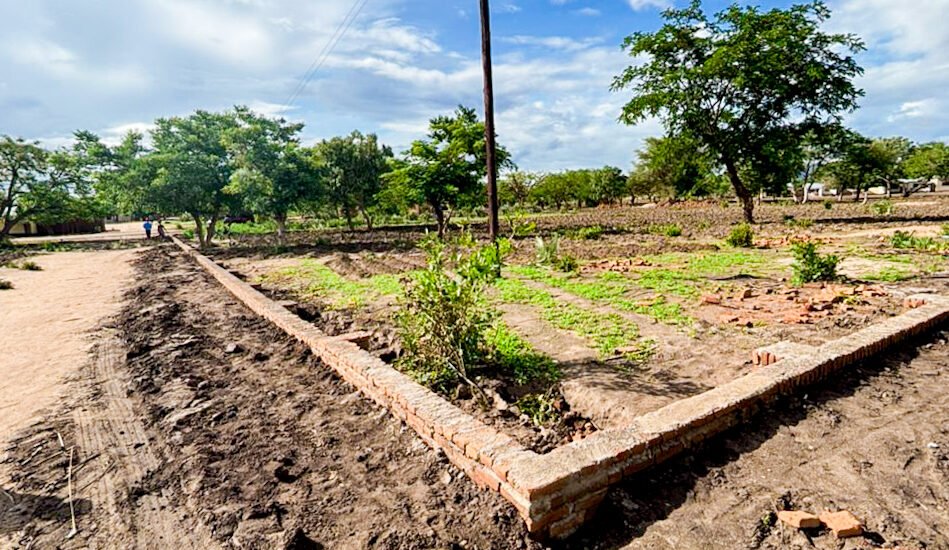


When the World Bank launched the Digital Malawi Project in 2021, allocating $72 million toward building a digitally inclusive Malawi, it felt like a turning point. Embedded in the initiative was a promise: not just of improved connectivity and digital services, but of fostering local innovation ecosystems in Malawi.
The World Bank had a plan to engage 8 hubs to achieve these goals.
However, at the time, there were only 5 hubs operational at the time in Malawi. The PPPC team made an effort to engage upcoming entrepreneurs who were open to establishing hubs. They held a few networking events, engaging several young people to share their vision, and I was one of the many young people invited.
At the time, I was looking to scale the work of this blog into broader digital media creation, and I had just launched the Ntha Foundation. Then, I was thinking along the lines of training est 50 people a year, and was looking to raise est $10,000 to finance our operations (nothing too ambitious).
The World Bank shared that they had plans to invest $250,000 in orgs willing to set up hubs, and I remember thinking two things:
My life partner at the time encouraged me to apply, and the Ntha Foundation was successfully selected as one of 6 hubs to operationalise the project in 2021. Hubs like the ‘Kwathu Innovation & Creative Centre‘ became part of this vision. We set up our HQ in Lilongwe (as per advice from the team), and a satelite hub at the Excel Primary School in Mangochi.
In the early days, there was an energy in the air: a feeling that we could build something that would last.
One of the project’s requirements was for participating hubs to present a sustainability plan. At the time, as a young entrepreneur, my understanding of sustainability was straightforward — I have bills to pay. For me, sustainability meant generating enough income to pay the rent, pay the team, keep the lights on, and perhaps grow. It was an entrepreneurial perspective — and a valid one.
But having now spent time on the other side of the system — inside public sector institutions, sitting in rooms where national policy is shaped, and navigating the weight of bureaucratic momentum; I understand sustainability differently. More broadly. More systemically.
It’s not just about staying alive: it’s about staying relevant in a system that is evolving, and often without you.
From a systems thinking perspective, sustainability is not only about revenue models or business continuity. It is about:
If I knew then what I know now, Kwathu would have gone differently. We might have built for deeper resilience; not just by diversifying our income, but by embedding our work into local systems, community structures, educational institutions, and even national programs.
And so, for me, this is more than just a business decision. It is a strategic realignment with everything I’ve learned.
This is not an impromptu decision. From the very beginning, my vision was always to set up the KICC in Mangochi. At the time, we were encouraged within the project to stay within the Capital City, so I could be mentored, and learn from experienced hub managers.
Over the years, I have gone back and forth, on the decision to relocate the hub to Mangochi.
I am finally commiting: we have decided to relocate Kwathu to Mangochi, not just because it is home, but because Mangochi, to me, represents the next phase of systemic relevance.
Most innovation efforts in Malawi are concentrated in Lilongwe and Blantyre. But the future… our future… depends on our ability to decentralize innovation. To take it beyond capital cities and into communities that are too often excluded from the national imagination.
Mangochi is strategically positioned:
Relocating doesn’t mean retreating: we are planting deeper roots, closer to the communities we want to serve long-term.
The vision for Kwathu in Mangochi is different. It’s not just a hub. It’s a center for experimentation and grounded innovation — a place that aligns with three principles of true sustainability:
If I could go back, I’d tell my younger self that grants are not business models. That true sustainability lives at the intersection of design, systems, and ownership. That entrepreneurship without systems thinking is fragile — and policy without entrepreneurial urgency is slow. You need both.
I’d also tell her that it’s okay that things didn’t go perfectly the first time. That iteration is not failure: it is evolution. And that sometimes, moving back home is not a step backward, but the boldest step forward.
As I begin storing equipment from Lilongwe, and as we prepare to break ground in Mangochi, I feel an unusual kind of peace. The kind that comes from knowing that this time, I’m not just building a space. I’m building a system within a system: one that understands how to survive, adapt, and grow.
This is my renewed commitment to sustainability. As a strategy. As an ecosystem. As a way forward.
as we Continue,
Ntha